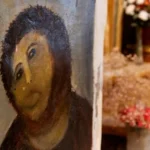The University Teachers Association of Ghana (UTAG) has joined mounting resistance to a draft Public Universities Bill, described as an attack on academic freedom.
UTAG Vice President for the University of Ghana-Legon,
The government has cited archaic laws at some universities as justification for proposing the Public Universities Bill.
The proposed law, being sponsored by the Ministry of Education, spells out the procedure for the establishment of Public Universities, the principles of management of public universities and the legal status of public universities.
The bill, which is expected to be sent to Parliament for consideration, also seeks to provide the procedure for financing public universities and administration and supervision of the activities of public universities and related matters.
Furthermore, clauses 5 and 12, the contentious aspects of the 48-clause bill, stipulate among others that the governing body of a public university shall consist of the following nine members appointed by the President:
(a) a chairperson nominated by the President;
(b) the Vice-Chancellor;
(c) four persons nominated by the President, one of whom shall be a woman;
(d) one representative of the registered Unions in the university on rotational basis
(e) one representative of the University convocation elected by the convocation;
(h) one representative of the students of the University, nominated by the Students’ Union; and
(j) one representative from the National Council for Tertiary Education who shall be a non-voting member.
It also states that the chairperson and other members of the Council shall be appointed by the President in accordance with article 70 of the Constitution.
The President may dissolve and reconstitute the council in cases of emergencies or appoint an interim council to operate for a stated period, according to the draft bill.
Dr Samuel Inkumbaan said on PM Express that every public university has been established for a particular purpose and hence a blanket law for all universities will be untenable.
“For example, if you have a University of Ghana or a University of Science and Technology (KNUST), it comes with its statues; it comes with its legal backing spelling out specifically what the university established is supposed to be doing.
“And so to say that you are generalising the act, which governs the operations of all the universities within the country seems to be the case that you expect KNUST to operate like the University of Allied Sciences,” he said.
He spoke on the current affairs programme on Monday evening.
He added, “indeed these universities are established specifically for specific purposes – considering the development needs of our country.”
He said rather a common universities bill, the government should deal with specific challenges at every university.
Public Relations Officer at the Education Ministry, Vincent Ekow Asafuah, had said that the law that governs KNUST, for instance, was enacted in 1961 and failed to deal with the violence that erupted in that institution last year.
“It [KNUST statute] is almost outmoded. It cannot be a law that in the 21st century you can use to govern a public university. That is why when the KNUST incident happened everybody was giving their interpretation of the law. There was not a clear cut roadmap [on] dispute resolution,” Mr Asafuah justified the proposed law.
He said the inconsistencies at public universities across the country have been enormous, prompting the government to propose the law “to bring uniformity as far as the universities.”
But countering this argument on PM Express, Dr Inkumbaan said the controversial Public Universities Bill does not satisfy the conditions as expressed by Mr Asafuah.
“There are a number of regulatory bodies, including the National Council for Tertiary Education” that can deal with the inconsistencies, he said.
In any case, he said, outdated laws can be sent to Parliament for amendment. “Why do we have Parliament,” he asked.
Source: Myjoyonline
















